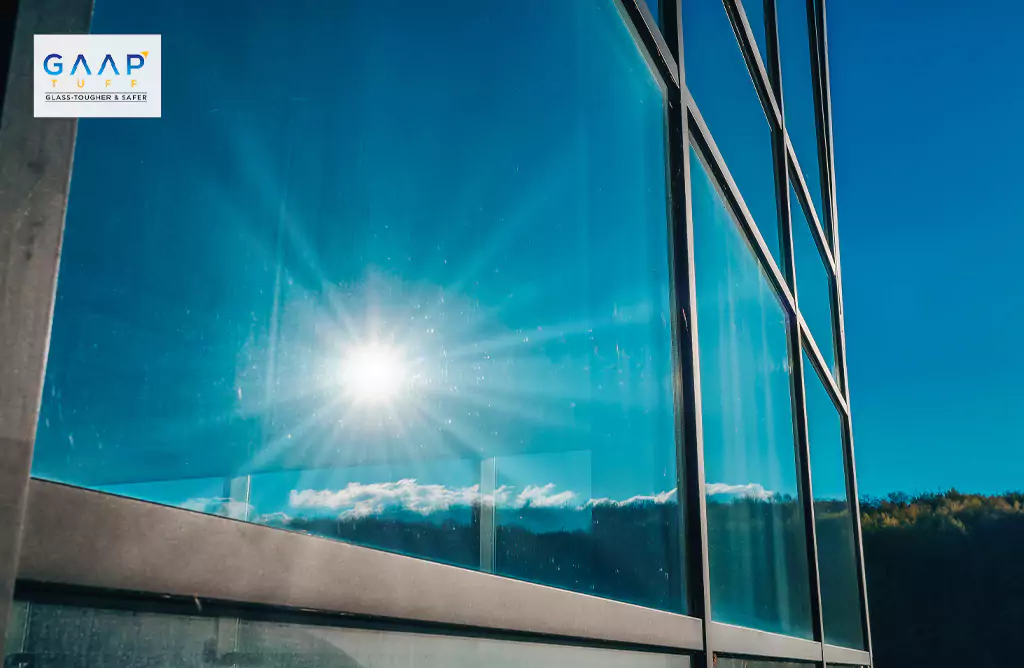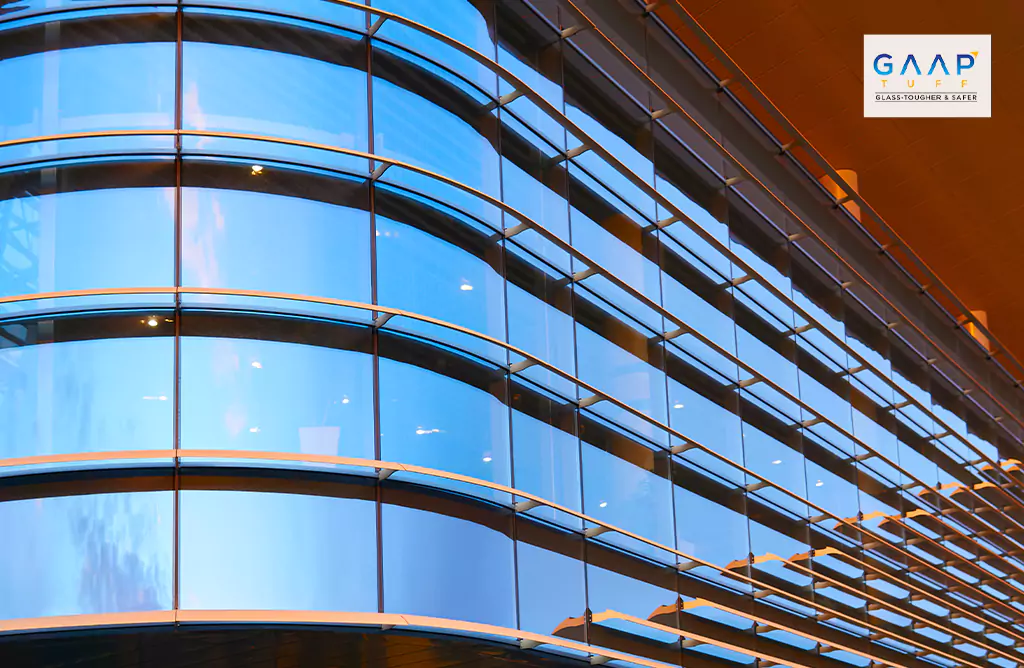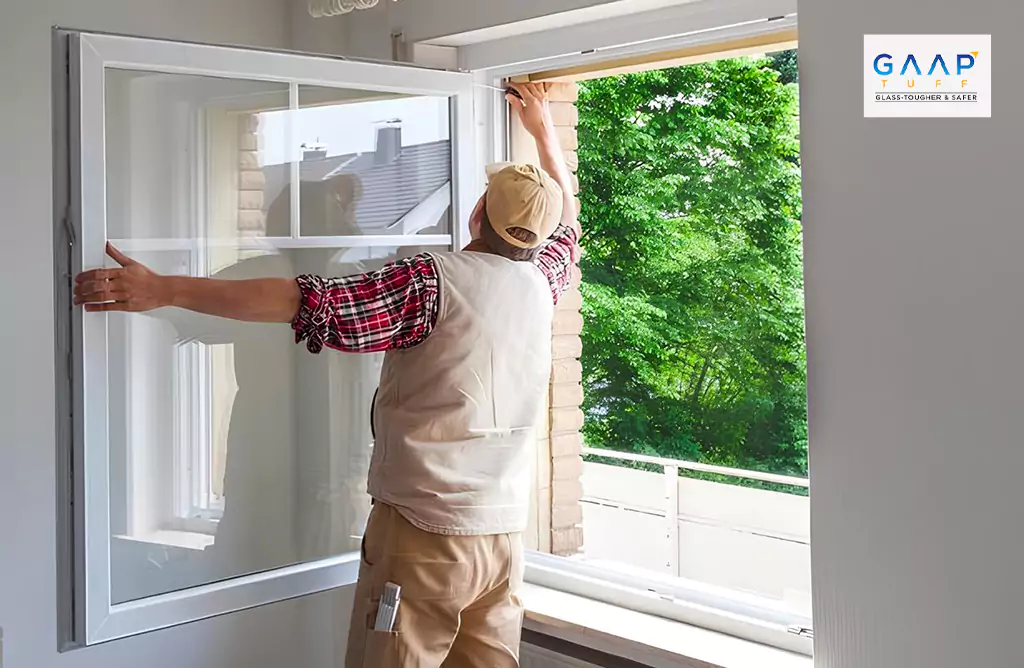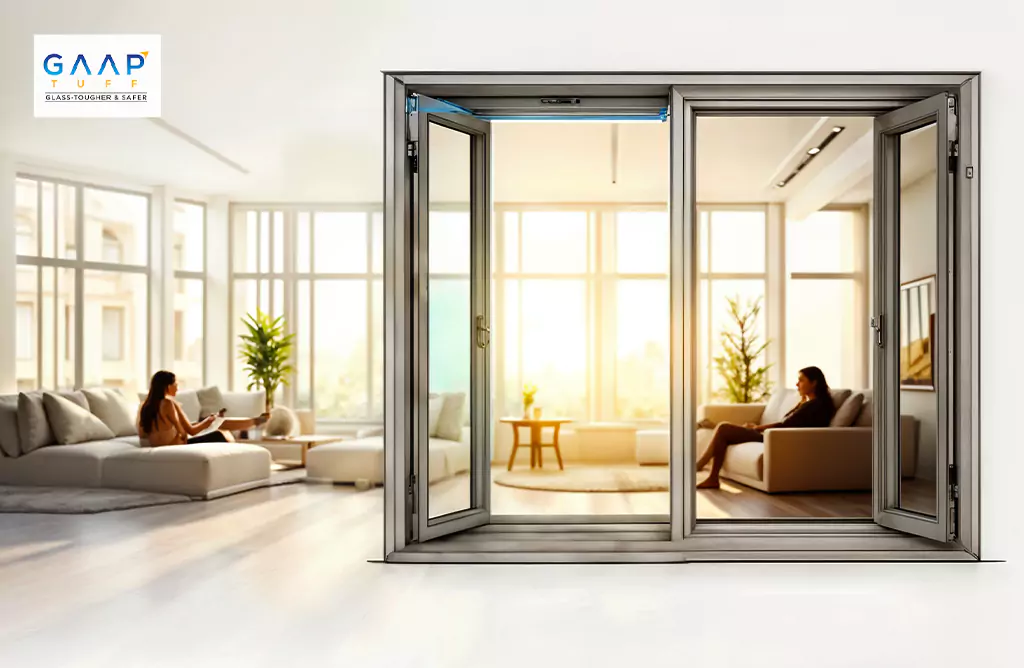In the modern day, sustainable building is not only a fashion, but it’s a must. With cities expanding and energy consumption on the increase, architects and developers are searching for innovative solutions that balance comfort, beauty, and the environment. One of those solutions is DGU glass, a technology that keeps buildings energy-efficient and ahead of the times.
What is DGU Glass and How Does it Work?
DGU, or Double-Glazed Unit glass, is also referred to as an Insulated Glass Unit (IGU). In simple terms, it consists of two panes of glass that are separated by a gap that contains air or a gas (such as argon) and are sealed tightly to avoid the entry of moisture or air.
The following are the components of a DGU glass panel:
- Two panes of glass (clear, tinted, toughened, or laminated)
- A sealed gap containing air or an inert gas
- Desiccants to soak up any moisture
- Tough sealants for long life
This arrangement creates a thermal barrier that resists heat transfer, keeping your building warm in winter and cool in summer, without excessive use of air conditioners or heaters.
Keeps Heat Out, Comfort in
One of the greatest strengths of DGU glass is temperature regulation. It keeps indoor areas comfortable by limiting how much heat enters or escapes. What this does is your AC or heater doesn’t have to work as much, saving electricity.
Benefits of DGU for Energy Savings
- Blocks unwanted heat during high temperatures
- Keeps warmth in during cold weather
- Saves electricity by up to 30%
- Enhances building energy performance ratings
With fewer power bills and lower carbon footprints, DGU glass is an intelligent move toward green buildings and enables certifications such as LEED, IGBC, and Griha.

Bid Adieu to City Noise
Contemporary structures tend to be situated in the midst of city centers alongside roads, airports, or industrial areas. City noise can be a monumental issue, but DGU glass significantly diminishes sound levels.
When you pair it with laminated glass or change the thickness of the two panes, it can reduce noise by as much as 45 decibels. This makes DGU glass ideal for:
- Schools and hospitals
- Hotels and high-end apartments
- Offices in noisy areas
In other words, it makes a quieter, more serene environment for individuals to work or reside in.
Protects Interiors from Harmful UV Rays
Sunlight illuminates a room but also introduces UV rays that destroy furniture, floors, and even artworks. With time, it results in fading and wear.
Low-E (Low Emissivity) coating DGU glass prevents as much as 99% of UV radiation from entering, yet lets natural light in. It is therefore suitable for:
- Museums and art galleries
- Retail stores
- Luxury homes and offices
It maintains interiors fresh for longer periods and assists in lowering cooling loads.
Improved Safety for All
Unlike ordinary single-pane glass, DGU glass provides improved safety and security. Here’s why:
- Dual glass layers are harder to break
- May feature laminated or toughened glass for impact protection
Toughened glass shatters into small, blunt fragments, minimizing the risk of injury.
For sensitive areas such as banks, airports, or data centers, DGU may be paired with bulletproof or fire-rated glass, providing robust protection without sacrificing design.

No More Fog or Moisture on Glass
In damp locations or air-conditioned spaces, glass fogs or forms water droplets. DGU glass doesn’t suffer from this issue due to:
- Sealed gaps of air
- Moisture-sucking desiccants
- Inert gases such as argon or krypton
What it implies is that your windows remain clean and clear, and your window frames will be long-lasting.
Suitable for Any Design you Envision
In addition to being functional, DGU glass also allows architects and designers some freedom to innovate. Whether you’re working on a contemporary office or a family home, it matches right in.
Design options include:
- Frameless glass facades
- Energy-saving skylights
- Stylish partitions
- Curtain walls with thermal insulation
You can also select from a variety of glasses, clear, frosted, reflective, tinted, or even smart switchable glass that alters appearance at the press of a button.
Where is DGU Glass Used?
DGU glass is used widely in energy-conscious construction. You’ll find it in:
- Green-certified office buildings
- Luxury apartments and villas
- Malls and showrooms
- Airports, hotels, and hospitals
- Colleges and schools
It helps make buildings more energy-efficient, comfortable, and stylish, a win-win for both owners and the environment.

Supporting Global Sustainability Goals
By saving energy, reducing emissions, and improving indoor comfort, DGU glass supports several United Nations Sustainable Development Goals (SDGs):
- SDG 7: Affordable and clean energy
- SDG 11: Sustainable cities and communities
- SDG 12: Responsible consumption and production
- SDG 13: Climate action
So, opting for DGU glass isn’t merely a prudent building choice, it’s also a move toward a greener future.
Why Builders Opt for Gaap Tuff for DGU Glass
At Gaap Tuff, we provide top-of-the-line DGU glass that’s specifically designed for India’s distinct climate, particularly in coastal and urban areas.
Here’s why we stand out:
- Smart manufacturing facility in Paravada
- Tailored solutions for every kind of project
- Certified products that are in line with international quality standards
- From start to finish, support for design, sizing, and installation
We think energy efficiency should never be an afterthought, but an integral part of every building’s DNA. That’s why we assist architects and builders in bringing their green vision to reality with glass that performs and protects.
Final Thoughts
DGU glass is more than just a building material. It’s a smart solution that improves comfort, cuts energy bills, reduces noise, and enhances safety, all while looking sleek and modern.
Whether you’re building a school, an office, or a luxury home, DGU glass from Gaap Tuff makes sure your project is designed for tomorrow. Choose smart. Choose sustainable. Choose Gaap Tuff.

